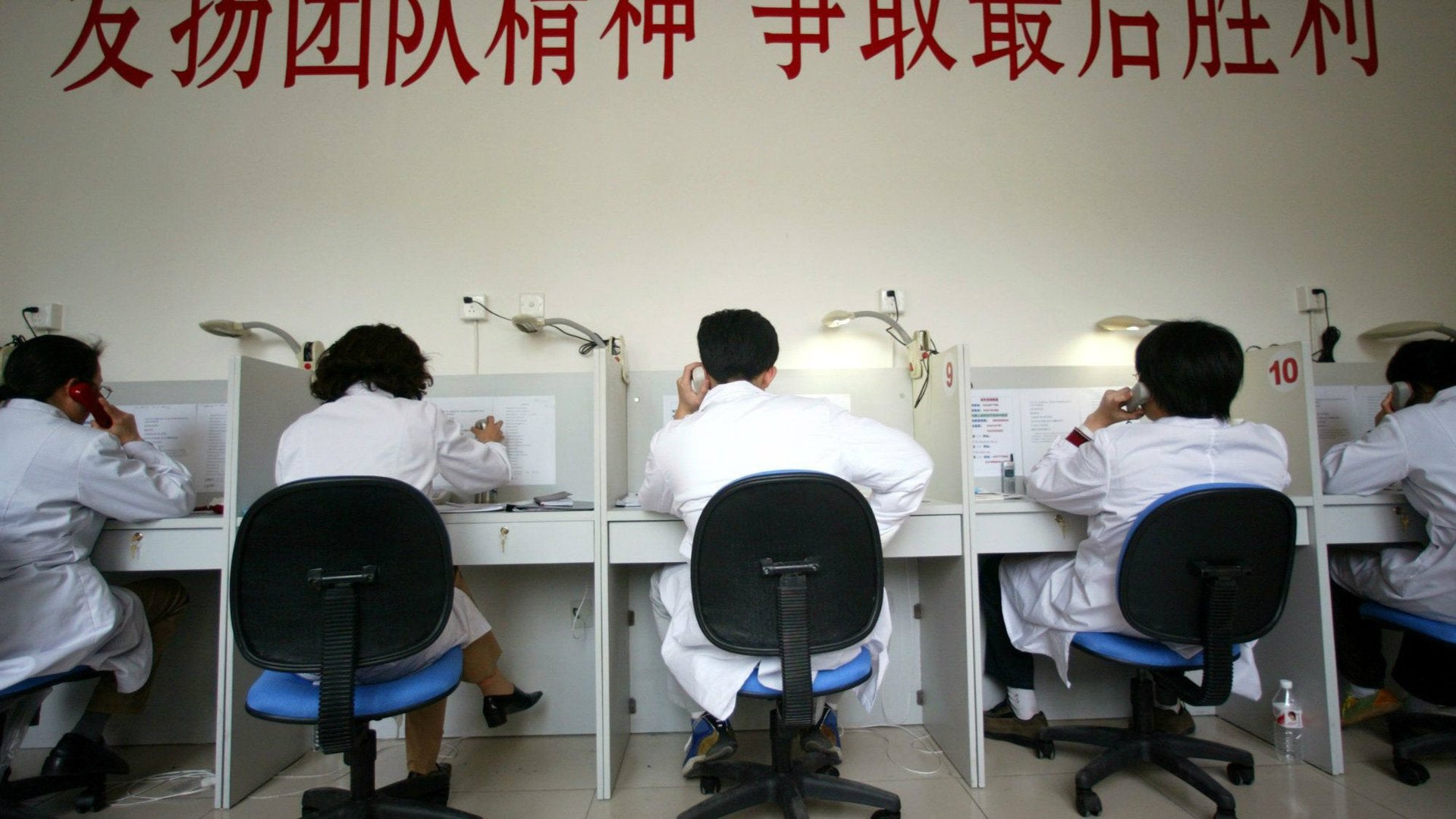China’s internet got a strange and lasting boost from the SARS epidemic
The outbreak of severe acute respiratory syndrome (SARS) from 2002 to 2003 left a profound mark on East Asia, and nowhere more than China, where the disease affected thousands of people and killed hundreds. Many Chinese recall how empty the streets were in those dreadful months, as hundreds of millions of people stayed home to avoid exposure to the killer virus.


The outbreak of severe acute respiratory syndrome (SARS) from 2002 to 2003 left a profound mark on East Asia, and nowhere more than China, where the disease affected thousands of people and killed hundreds. Many Chinese recall how empty the streets were in those dreadful months, as hundreds of millions of people stayed home to avoid exposure to the killer virus.
But this confinement gave an unexpected boost to the country’s nascent e-commerce sector: Unwilling to go out for anything but the essentials, many Chinese began shopping online.
One big beneficiary was Alibaba, then in its infancy, and now the colossus of the Chinese internet. As Duncan Clark, author of a new book on Alibaba, writes:
Although it sickened thousands and killed almost eight hundred people, the outbreak had a curiously beneficial impact on the Chinese Internet sector, including Alibaba. SARS validated digital mobile telephony and the Internet, and so came to represent the turning point when the Internet emerged as a truly mass medium in China.
The virus gave a major boost to texting, which increased business for cellular companies like China Mobile. However, SARS also boosted the three Chinese Internet portals thanks to revenue-sharing agreements with the telecom company. As the shares in Sina, Sohu, and NetEase began to climb, investor interest in Chinese technology companies was suddenly reignited. Cell phone usage wasn’t the only thing to benefit; broadband Internet access got a huge lift, too, as millions of people, confined to their homes or dormitories for days or weeks on end, looked to the Internet for information or entertainment. (…)
Reliable information about SARS was hard to come by, especially in the early months of the outbreak, when China’s official media, including state broadcaster China Central Television, stayed mute. Instead people looked to their cell phones and PCs to learn about the virus and the best ways to protect themselves. Crucially for Alibaba, SARS convinced millions of people, afraid to go outside, to try shopping online instead.
At a discussion of Alibaba: The House that Jack Ma Built hosted by the Asia Society in New York last night (Apr 13), Clark pointed out that the SARS outbreak coincided, for many Chinese, with the arrival of high-speed connectivity at home: ”This is just when people began to be offered broadband connections, and people began to experience what they could do when they were stuck at home.” The full force of China’s e-commerce boom wouldn’t be felt for a few years yet, says Clark, but “this was the genesis.”
Like many employers, Alibaba founder Jack Ma sent his employees home during the worst period of the outbreak. One team was holed up in an apartment in Hangzhou—the literal birthplace of Alibaba itself. They were tasked, Clark says, “to come up with a new idea” for the company.
At that time, Alibaba was a business-to-business service. The team came up with an idea that would eventually evolve into Taobao, the company’s big thrust into business-to-consumer services. Taobao is now the backbone of Alibaba’s e-commerce empire, one that serves over 330 million online shoppers.